CURRENCY
BUSINESS OPPORTUNITIES IN TURKMENISTAN
TURKMENISTAN
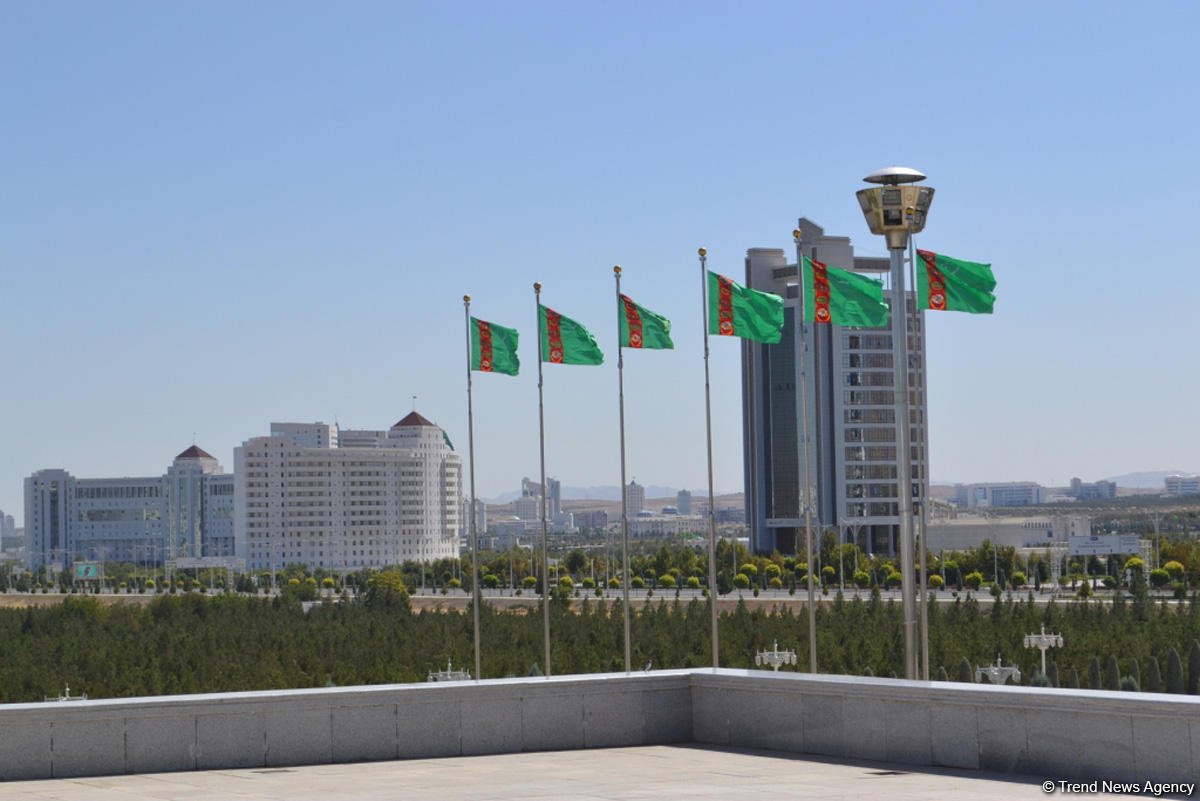
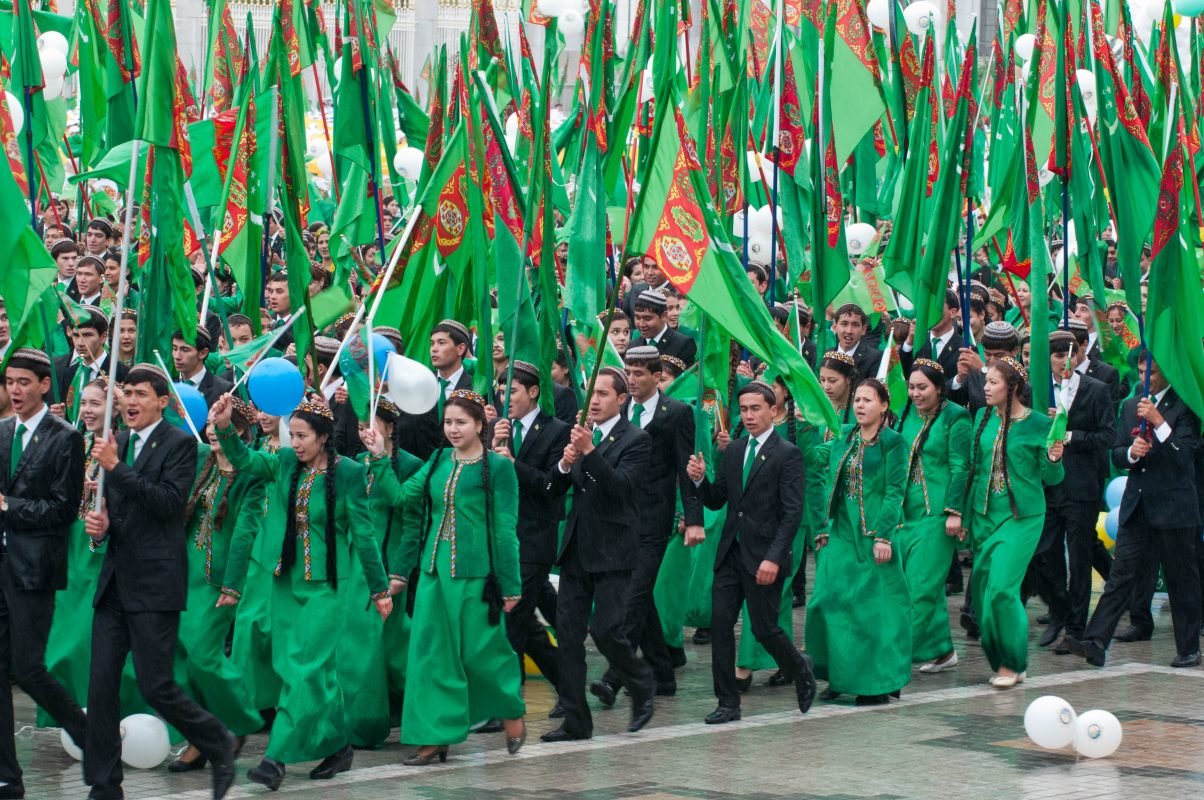
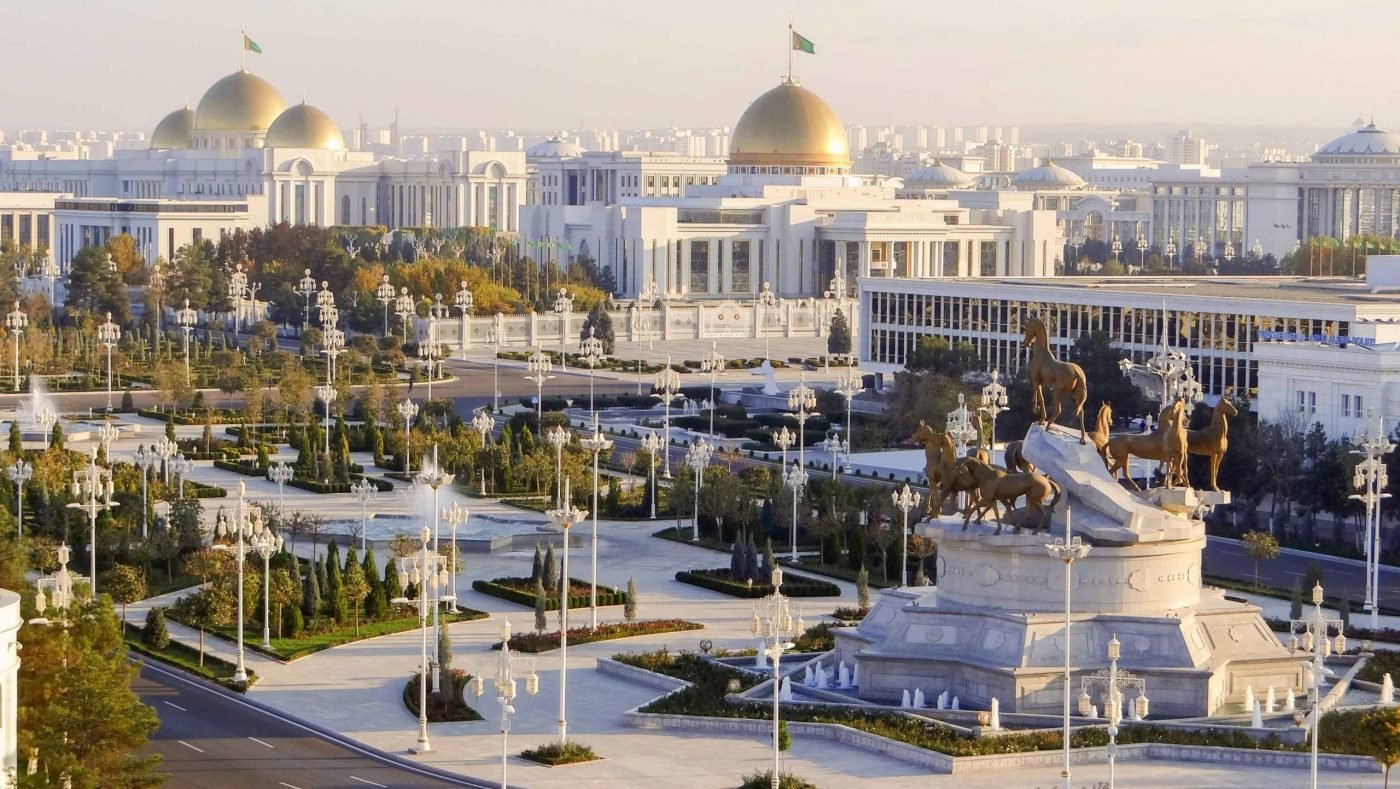
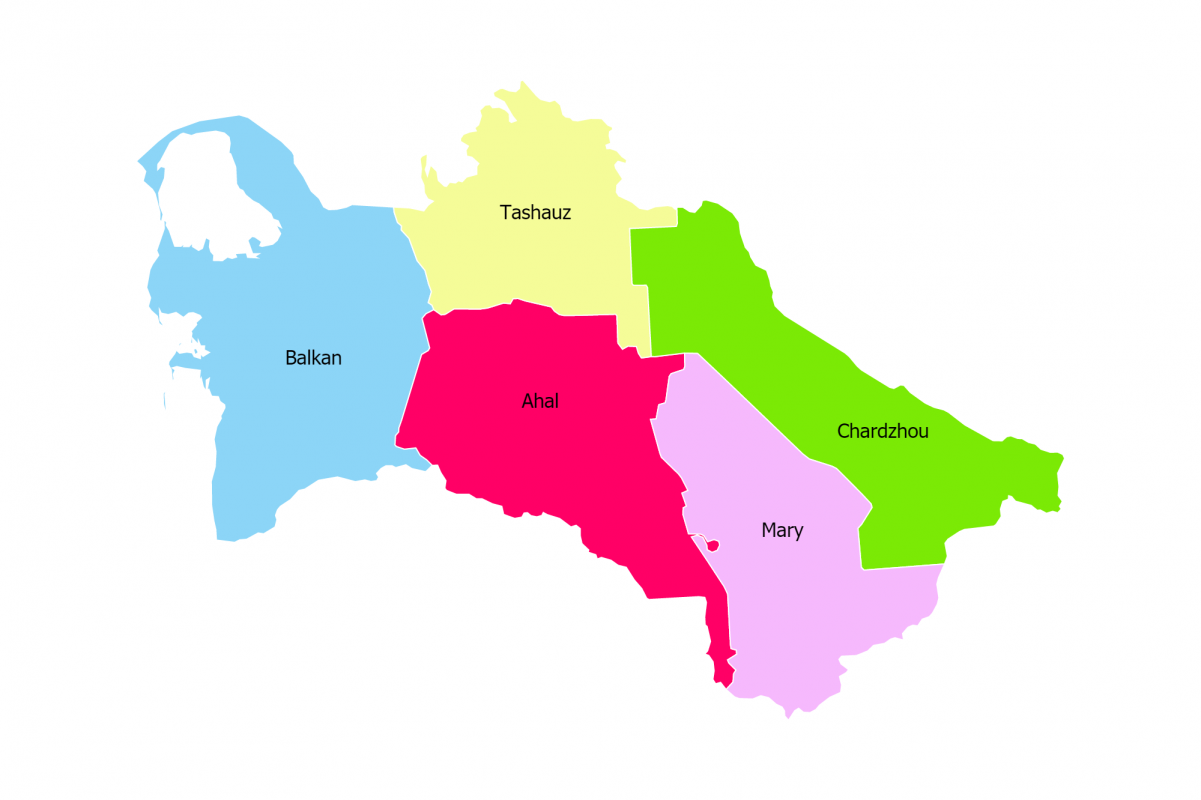
FLAG
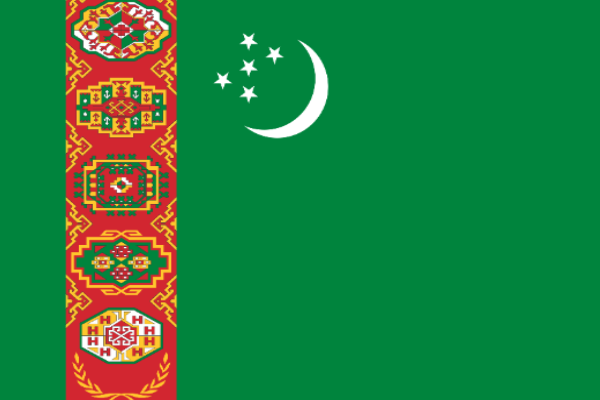
TURKMENISTAN
CAPITAL CITY
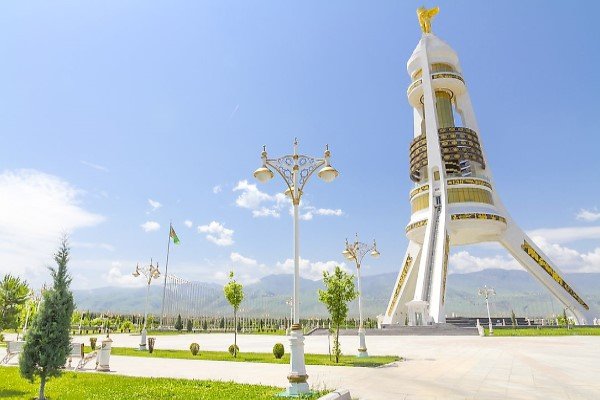
ASHGABAT
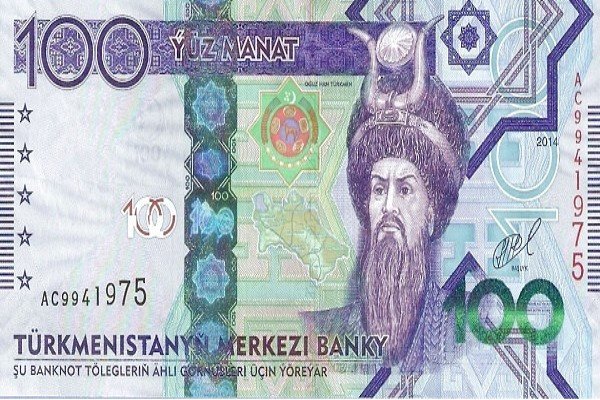
TURKMENISTANI MANAT
Language

Population

61.27 LAKHS
Country
Calling Code

+993
LOCATION:
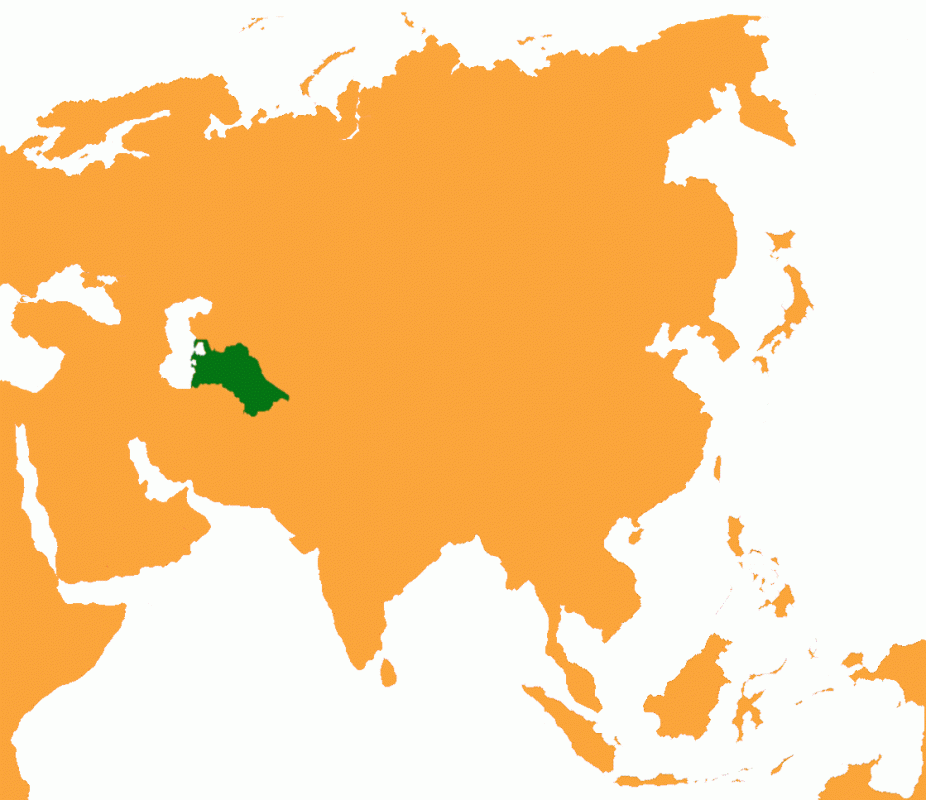
CENTRAL ASIA
BORDER COUNTRIES:
KAZAKHSTAN
UZBEKISTAN
AFGHANISTAN
IRAN
ABOUT TURKMENISTAN
Amongst all the countries in Central Asia, Turkmenistan is a landlocked nation renowned for its vast natural gas reserves, unique political system characterized by “permanent neutrality,” and an economy largely controlled by the state. Ashgabat, the capital and largest city, is famous for its grandiose white marble architecture and serves as the country’s administrative and cultural center. While definitive and transparent economic data can be challenging to obtain, Turkmenistan is generally considered an Upper-Middle Income Economy by international bodies, driven by its immense hydrocarbon wealth.
The currency of Turkmenistan is the Turkmenistani Manat (TMT). As of today’s approximate official exchange rates (June 2025), 1 Turkmenistani Manat is approximately 23.95 Indian Rupees. However, it is important to note that black market rates can differ significantly. The population of Turkmenistan is estimated at approximately 6.5 million in 2024, though official demographic figures are often subject to international scrutiny due to their opacity. Turkmenistan shares land borders with Kazakhstan to the north, Uzbekistan to the north and east, Afghanistan to the southeast, and Iran to the south. It also has a coastline along the Caspian Sea, which it shares with Russia, Kazakhstan, Azerbaijan, and Iran, serving as its primary maritime trade gateway. The official language is Turkmen. English proficiency is very limited, primarily spoken in specific government and international business circles. The vast majority of the population practices Islam, predominantly Sunni. The main international airports include Ashgabat International Airport (ASB) and Turkmenabat International Airport (CRZ). Turkmenistan’s key commercial seaport is Turkmenbashi International Seaport on the Caspian Sea, which is undergoing modernization to serve as a significant regional transit hub.
The standard corporate income tax rate in Turkmenistan is generally 20%. While the government expresses a desire to attract foreign investment, the investment environment is heavily state-controlled and can be opaque. Investment incentives exist but are often highly specific, negotiated on a case-by-case basis, and primarily focused on strategic sectors. Key areas for potential incentives might include:
- Tax and Customs Exemptions: For certain large-scale projects, particularly in the oil and gas sector or major infrastructure developments.
- Special Economic Zones: While not as developed as in other countries, efforts are being made to establish zones with preferential tax or customs regimes.
- State Support and Guarantees: For projects deemed of national importance, typically involving state-owned enterprises as partners.
Opesh Group of companies can assist in providing information and guidance on navigating the complex and state-controlled business environment in Turkmenistan. Due diligence in this context would focus on understanding the specific regulations, engaging with state entities, and managing the unique risks.
Establishing a business in Turkmenistan requires navigating a highly centralized and state-dominated legal and economic system. The most common legal forms for foreign engagement include Limited Liability Companies (LLC), Joint Stock Companies, and Representative or Branch Offices. Foreign investment is often channeled through joint ventures with state-owned enterprises, particularly in strategic sectors like oil and gas. While 100% foreign ownership is theoretically possible in some non-strategic areas, in practice, state involvement or influence is pervasive. The business environment is characterized by significant bureaucratic hurdles, limited transparency, and the paramount role of government entities in economic activity.
In case an investor is planning to establish an LLC or pursue a corporate business setup in Turkmenistan, Opesh Group will provide comprehensive guidance on understanding the regulatory landscape, engaging with relevant state bodies, and structuring your approach in this unique market.
Types of Business which can be considered in Turkmenistan (highly state-controlled and specific):
- Oil & Gas Sector: This is the dominant sector, holding the world’s fourth-largest natural gas reserves. Opportunities are primarily in large-scale infrastructure projects (e.g., pipelines like TAPI), specialized services, or joint ventures with state-owned hydrocarbon companies.
- Chemical Industry: Leveraging vast natural gas resources, investment opportunities exist in petrochemicals, fertilizers (e.g., urea, ammonia), and other gas-derived products.
- Infrastructure Development: Significant government investment in modernizing transport infrastructure (roads, railways, Caspian Sea port), energy infrastructure (power plants, transmission lines), and urban development.
- Agriculture & Agro-processing: Focused on cotton and wheat. Opportunities exist in modernizing agricultural techniques, processing agricultural products (cotton yarn, textiles, food processing), and improving irrigation systems.
- Textiles: Given its raw cotton production, there are opportunities in value-added textile manufacturing, from spinning to finished garments.
- Niche Tourism: While overall tourism is limited, some opportunities exist in developing specialized cultural and historical tours along the ancient Silk Road, or desert adventure tourism, often in cooperation with state entities.
Advantages of Starting Business in Turkmenistan (highly specific context):
- Vast Natural Gas Reserves: Provides a strong foundation for the energy and petrochemical sectors.
- Strategic Geographic Location: Potential for transit routes connecting East, West, and South Asia.
- State Support for Priority Projects: Government is willing to invest in and guarantee projects deemed strategically important.
- Permanent Neutrality Status: A declared foreign policy principle, aiming for stability.
- Developing Infrastructure: Ongoing large-scale government projects in transport and energy.
Imports & Exports: Turkmenistan’s trade balance is heavily skewed by its massive natural gas exports, with other sectors playing a minor role.
Major items which are exported from Turkmenistan:
- Natural Gas (dominant export, primarily to China)
- Crude Petroleum and Petroleum Products
- Cotton and Cotton Textiles
- Fertilizers
- Electricity
Major items which are imported in Turkmenistan:
- Machinery and Equipment
- Vehicles
- Food Products (e.g., cereals, sugar)
- Consumer Goods
- Metals and Metal Products
- Chemical Products
Major items traded between Turkmenistan and India (as of June 2025): Trade between Turkmenistan and India is relatively modest, but there is potential for growth, especially within the framework of the TAPI pipeline project (Turkmenistan-Afghanistan-Pakistan-India) and broader regional connectivity.
- Exports from Turkmenistan to India: Primarily include cotton, some chemicals, and basic goods. Potential future exports include natural gas via TAPI.
- Imports in Turkmenistan from India: Often include pharmaceuticals, textiles, agricultural machinery, chemicals, and some consumer goods.
Manufacturing: Turkmenistan’s manufacturing sector is heavily concentrated around its natural resources.
- Oil and Gas Processing: Dominant manufacturing segment, including refined petroleum products and petrochemicals (e.g., polyethylene, polypropylene).
- Textile Industry: Significant production of cotton yarn, fabrics, and garments, utilizing domestic cotton.
- Food Processing: Limited, mostly for domestic consumption, including flour, bread, and some dairy products.
- Construction Materials: Production of cement, glass, and other materials to support domestic construction booms.
Mining: Mining is the cornerstone of Turkmenistan’s economy, overwhelmingly dominated by hydrocarbon extraction.
-
Natural Gas: Holds some of the world’s largest proven natural gas reserves (e.g., Galkynysh field).
-
Crude Oil: Significant oil reserves, though less than gas.
-
Sulfur: Large reserves, often associated with natural gas.
-
Iodine and Bromine: Extracted from underground brines.
-
Potash and Rock Salt: Other notable mineral resources.
-
GDP = $84.4 billion (nominal, 2024 est. IMF)
-
GDP Growth = 6.0% (2024 est. IMF); 5.8% (2025 forecast, IMF)
-
Ease of doing business rank = The World Bank’s ‘Doing Business’ report has been discontinued. Turkmenistan consistently ranked very low in the report (e.g., 144th out of 190 economies in 2020), indicating a challenging and opaque business environment due to its highly centralized and state-controlled economic system.
-
GDP per Capita = $12,960 (nominal, 2024 est. IMF)
Thanks for reading this Article. Watch our Video and know more about Turkmenistan. For any Business Enquiry Join Millionaire Program and change everything in life and Business.. Call/WhatsApp +91- 8094607111.
MOST RECENT VIDEOS
SIGN UP TODAY
Get our exclusive content and offers in your inbox











